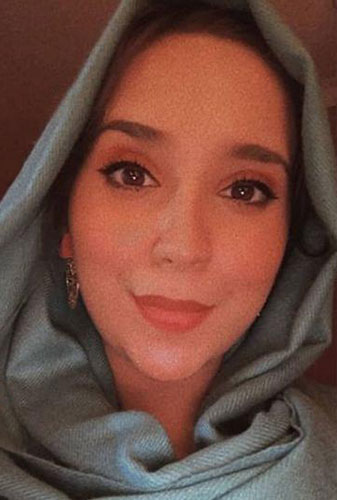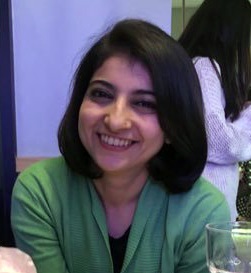Peace on whose Terms?
It is too early to reach any conclusion regarding Indo-Pak relations after the joint ceasefire announcement. However, countless speculations are doing the rounds with respect to where it would lead and if engagement with India could be broadened enough, resulting in resumption of dialogue. In 2020, ceasefire violations reached 3,000 from the Indian side, hence, how could one trust commitment to peace from the other side of the border where they have showed more reluctance than Pakistan to mend ties and resolve the long-drawn Kashmir dispute?
Maleeha Lodhi’s article provides a succinct analysis of the DGMOs hotline communication and raises questions concerning the longevity and actualisation of the ceasefire move, paving way for normalisation of ties. Pakistan also needs to decide what kind of peace it seeks to achieve because it can’t afford to overlook the use of increased military might in the Occupied Kashmir territory since 5 August 2019; along with the decades-long and arduous Kashmiri indigenous struggle. Islamabad will have to decide whether to accept peace on Indian terms or take the road to a long-term commitment to the Kashmiri cause where it will have to propose concrete conditions to restore Occupied Kashmir’s status to pre-5 August and then resume bilateral trade between the two nuclear-armed countries.

Karachi
The Politics of Privilege
This is with reference to “Uneasy Lies the Head…” (March ‘21). No doubt, contradictions of Pakistan’s political system are intensifying with each passing day, as manifested in the growing political polarisation and the ebb and flow of high politics we have seen recently. A historical analysis will, however, reveal these to be the hallmarks of politics in Pakistan. Political parties, when out of power, turn to street mobilisation and speak the language of change and democracy, but they have consistently failed to practice what they preach. They are yet to grapple with the key question of how to link the cause of democracy with the aspirations and needs of the masses. Mainstream parties have fallen short of articulating any popular socio-economic programme with the potential to resolve the long-standing structural problems that beset Pakistan’s economy and society at large. Short of this — the status quo will remain as it is, notwithstanding the seeming ups and downs of elite politics.

Islamabad
Challenges Ahead
Challenges lie ahead for both the opposition and ruling government, in light of current political developments. Shaheen Sehbai’s aptly titled article, “Do or Die,” takes us through the options the PM has to overcome upcoming challenges and to deliver on the mandate of weeding out corruption.
On the other hand, the opposition’s PDM alliance reeks of a trust deficit amongst the three mainstream parties: PPP, PML-N and JUI-F. The PPP forms the Sindh government while PML-N and JUI-F don’t hold any power provincially. Therefore, taking a tough stance is far more crucial for them than the PPP. The election for Chairman Senate going in the government’s favour as well as the vote of confidence won by the PM seem to have taken a toll on the PDM’s unified strategy.
In this scenario, it becomes important for the ruling government to pull up it socks, take advantage of the PDM’s infighting and go forward with bringing about economic relief for the impoverished, eradicating corruption and fulfilling the promises it made before coming to power.

Karachi
Carrot and Stick
Currently considered historic, the first-ever peace talks between the Afghan government and the Taliban are under-way. However, the talks must only be deemed historic and constructive if they can lead to eternal peace in war-torn Afghanistan, resulting in long-term peace for its neighbours, primarily Pakistan.
After the second round of talks, members of the Afghan government delegation in Doha said that the US diplomatic team led by Zalmay Khalilzad had conceded too much to the Taliban. Moreover, sources in the Afghan presidency say that the Ghani administration released 5,000 Taliban prisoners at the insistence of the US, but there has been no reduction in violence.
Therefore, instead of unilaterally depending on dialogue, the US and Afghan government must exercise the ‘carrot and stick’ approach as one doesn’t see them taking an upper hand in the talks otherwise. Also, to gain legitimacy and credibility among the populace in Afghanistan and Pakistan, state actors must seriously consider the loss of innocent lives because of the violence inflicted by the Taliban. Therefore the need for a thicker stick and a smaller carrot should hold ground in future engagements.

Karachi
Hold your Horses!
The apparent ‘thaw’ in India-Pakistan relations was a key focus of the previous issue. However, upon a closer look, one will realise that this narrative is more hype than reality. Despite the statements of the COAS Gen. Bajwa, Pakistan’s basic position on the Kashmir issue has remained unchanged. Prime Minister Imran Khan was keen to stress, in his speech at the Islamabad Security Dialogue, that India must take the “first steps” if it wants peace, and reverse its recent aggressive moves in Kashmir. The Indian government is unlikely to change course in Kashmir at this late stage, with plans to resettle Hindu migrants in the valley well underway.
Much has been made of supposed behind the scenes intervention by the US and its regional ally the UAE to bring the two sides together. This is a well-trodden path for Indo-Pak relations. Outsiders, going back to the days of the USSR, have sponsored peace initiatives before only to have them fall apart. The current discourse surrounding the COAS’s comments reminds one of the hoopla surrounding the meeting of the leaders of South and North Korea under former President Trump, another US peace initiative. Regardless of tall promises, the initiative fizzled out as neither side was willing to compromise on their key national priorities to accommodate the other.

Karachi
From Family Planning to Pandemic
Public Health emergencies often divert human and financial resources from essential health programmes to respond to disease outbreaks. Such is the case in Pakistan, where the COVID-19 pandemic has caused disruptions in health, social systems and the national economy. The country will face a hard time meeting family planning needs and demands of men and women of reproductive age.
In many places where health systems are overwhelmed with COVID-19 cases, the focus of family planning counselling and services are being shifted to attend to the needs of those affected by the pandemic. In some places, women refrain from visiting health facilities due to movement restrictions or fear with respect to COVID-19 exposure. Additionally, supply chain disruptions are limiting the availability of contraceptives in many places. This can lead to significant delays in planned efforts to scale-up access to family planning for women of reproductive age.

Karachi
Muzzling the Media
Whereas PEMRA is supposed to be an independent body, it has been rightly identified by Shahzada Zulfiqar as an institution puppeteered by wily politicians for their own gains. The so-called democratic governments that do enough harm by buying their way to power also dictate thoughts, ideas and words that are broadcast by the television sector.
Saleem Baig’s hasty bans imposed on various channels in the absence of valid grounds is a classic example of Pakistan’s high and mighty losing sight of professionalism. Media, which should represent the country, is tongue-tied, scarred, butchered and abused day in day out. The citizen’s right to know is the last thing on this regulatory body’s mind.
If PEMRA is going to be yet another government controlled regulatory authority, then what is the difference between the conservative state-owned channel whose freedom of expression was questioned, and the private channels who were supposed to be the voice of the masses.

Dubai
The Art of Medicine
It is important to recognise that medicine is not only a science, but rather an ‘art.’ After all, there is no other field that requires more compassion and empathy. It is an art since the physician is not only concerned with the body of the patient but has to touch the mind and soul of the afflicted.
Traditional biomedical models focus merely on the disease, the pathology, but it is essential that one encompasses various other facets of the patient’s life, in order to understand how the disease impacts the patient’s life and the patient’s family. When dealing with cancer, physicians ought not to focus on just the abnormal mass, or tumour, but rather on how the cancer rules the life of the patient. Unfortunately, in Pakistan, the biomedical model dominates, leading to strained therapeutic relationships, and overall bad healthcare quality.

Karachi
Letters should carry the writer’s name, picture, address and phone numbers.
Letters may be edited for purposes of clarity and space.
Email address: letters@narratives.com.pk



